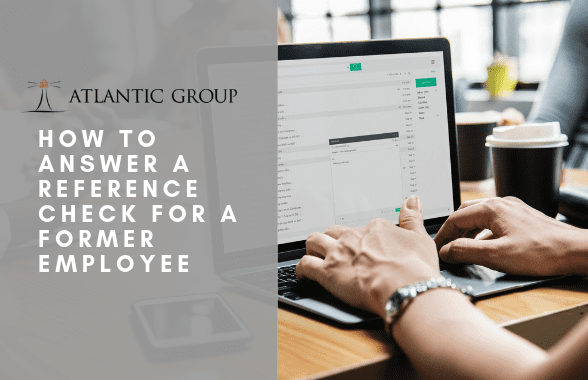
As a manager who oversees one or more employees, you will eventually be called on to offer a reference check for someone who has worked for you in the past. However, giving an accurate and legally safe reference check is more complex than it sounds.
You need to be careful to only refer to things you know and facts that fairly represent an employee you are no longer connected to. It’s vital that you conform to any legal or policy rules on providing reference checks.
The good news is that if you follow a few basic protocols, you can provide quality reference checks every time.
Let Your Company’s Policy Be Your Guide
First and foremost, check your company’s policies on providing reference checks. These guidelines will likely include most of what you need to know about how to answer phone calls and emails regarding a previous employee.
Reference Checks in Writing
You may have the idea that reference checks are always a phone chat with former managers. In reality, it’s often more like basic paperwork. HR gets a written request (or you forward one) and then a written reference check is provided. Written references are usually in a standard format that includes basic information to confirm the facts of a person’s employment like the dates, role, wages, and supervisor.
If you have something positive or negative to add, run it by HR first before contacting the reference requester.
Never Provide Without the Subject’s Approval
The person you’re referring should always be aware and grant permission. Never take responding to a reference into your own hands without confirmation from HR. More specifically, HR must approve a signed document of permission from the person being checked up on.
Keep Your Answers Basic – Confirm the Facts
Unless cleared by HR and you have special information to impart, don’t go into detail. Confirm the dates, position, on-paper achievements, and salary (if permitted by the company) in order to provide a solid “Yes, they worked here and did their job” type of reference.
Just-the-Facts references are the safest to provide and do not put a former employee’s prospects at risk.
Provide Warm Recommendations When Possible
If you have warm and positive things to say about a former employee, clear your comments with HR speaking to the reference checker. Feel free to have a brief, positive conversation where you mention that the employee worked well with their team, contributed significantly to projects, or seemed like a bright and enthusiastic employee.
Only Speak to Your Direct Knowledge & Experience
Of course, you should only speak to things you witnessed personally or can be backed by on-paper records. Reference checkers often ask leading questions that you either should not answer or ask you to predict the future. Only speak to what you witnessed in a workplace context.
Work with HR to Provide Safe Negative References
If you need to provide a negative reference, always do so with HR’s advisement. You may need to write a carefully worded written reference instead of talking on the phone to be certain that you are conforming to all legal and safety standards.
Some negative comments may be seen as slanderous or injure the person’s ability to get new jobs if they have improved. Other times, as with threats or acts of violence, you may be obligated to tell new employers of a potentially dangerous employee.
Only provide negative references through HR and never provide a negative reference just for personality conflicts or minor performance issues.
Keep Your Conclusions Open-Ended at All Times
Employees change over time. They learn from their mistakes. They go through marriages, children, divorces, and losses outside of work. You may or may not know what personal problems an employee was going through when they worked for you, or how hard they’ve worked on themselves to improve since a bad experience. In fact, you also can’t know if a great employee has become less productive, or if they will excel in a new work environment as well as they performed under your management.
Confirm the facts. Relay their performance in the context of the role and the work you oversaw. Always keep your conclusions about a former employee open-ended. People change, and you can only speak to what you saw and what your company allows you to convey.
Atlantic Group Recruiters can offer help with all stages of the hiring process for both businesses and candidates. Contact the team at Atlantic Group for more information or to enlist our services.